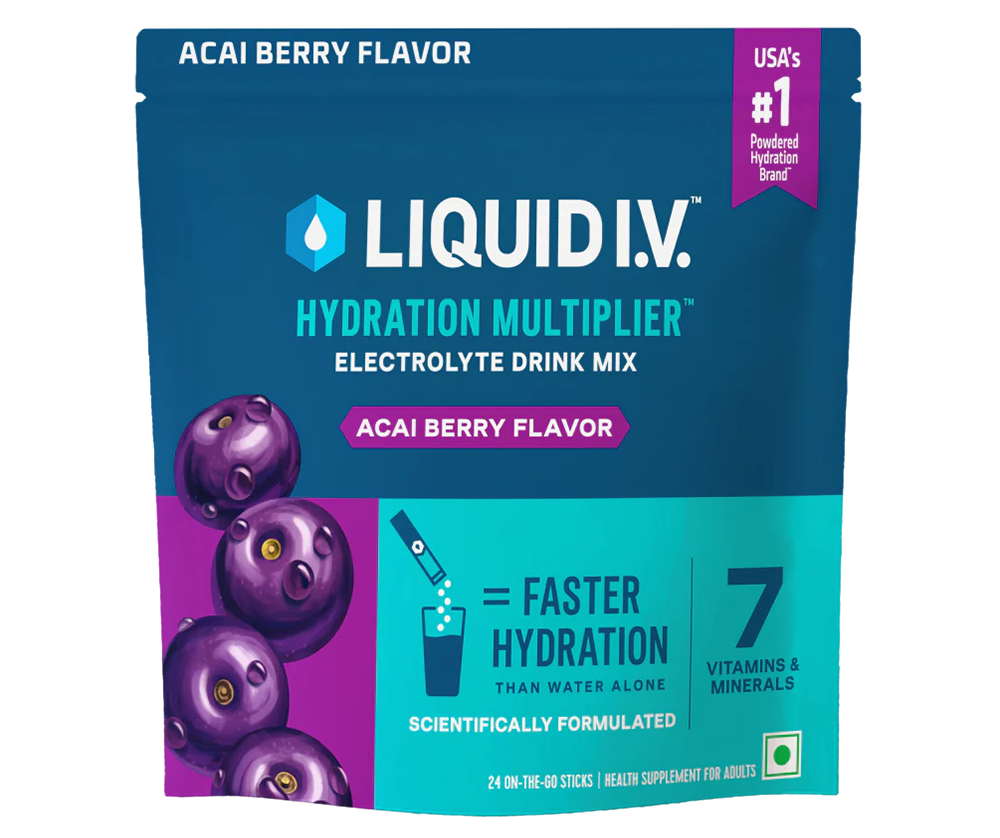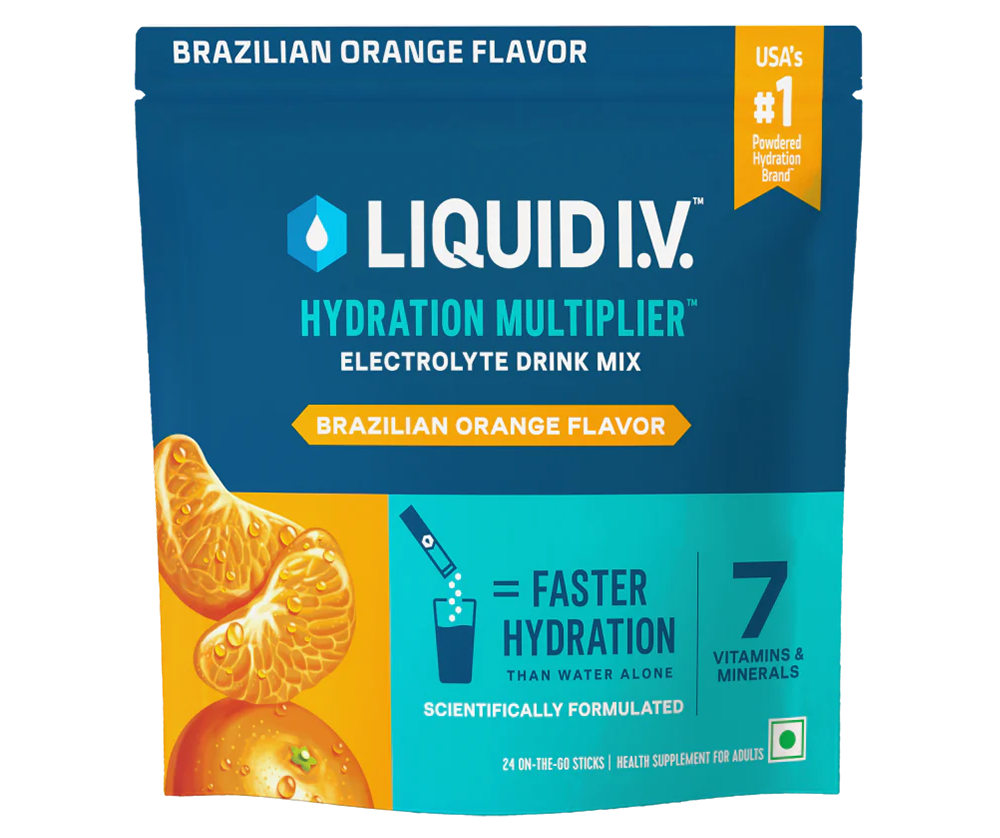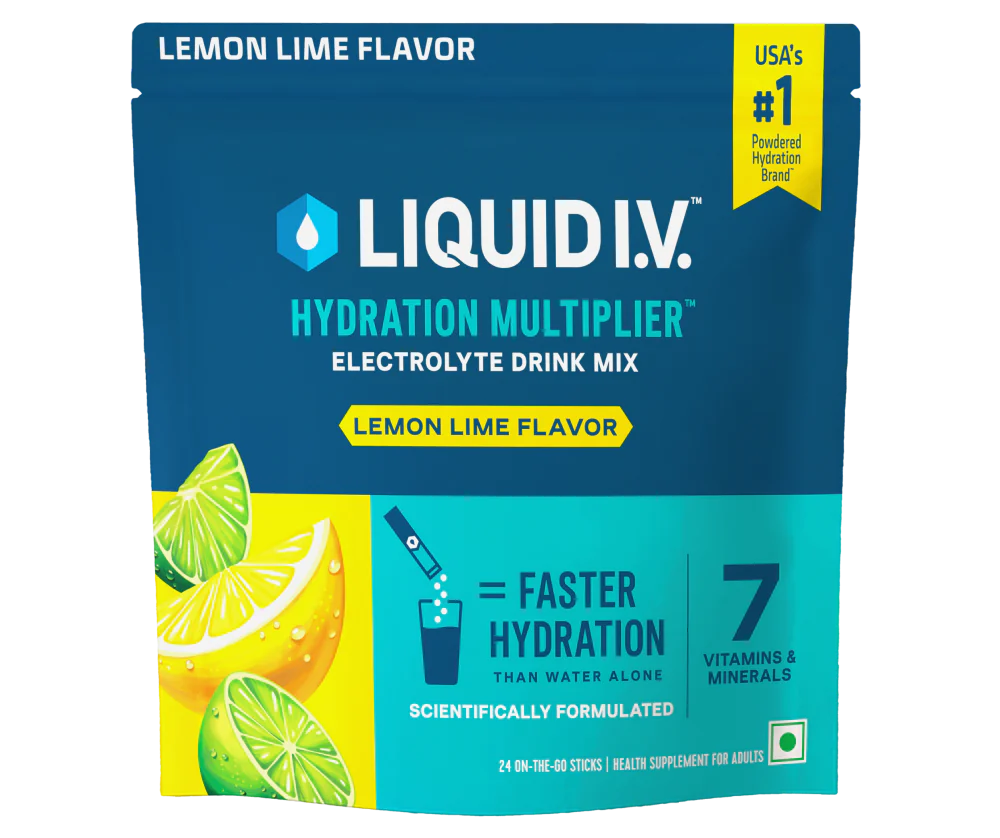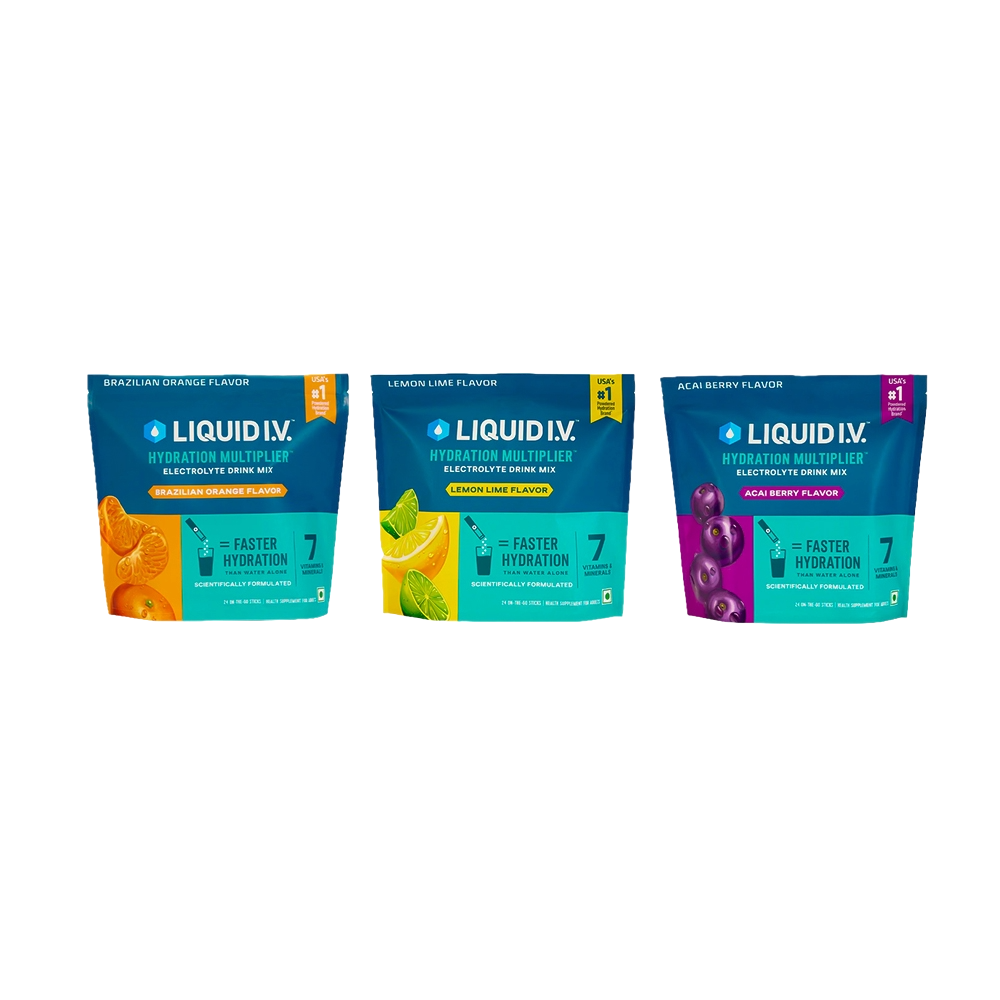The Right Amount of Dietary Water: How Much Should You Drink Daily?
Water is literally the OG life source. This humble yet iconic molecule with just hydrogen and oxygen, makes up a huge chunk of your body - anywhere from 50 to 75%. (1) It’s basically the MVP of survival, handling everything from regulating your body temp to moving nutrients around and flushing out waste. One of the biggest hydration questions out there? How much water should I drink daily? Sounds simple, but the answer is way more layered than just a magic number - different sources give different advice.
This blog post is here to break it all down, covering water’s endless benefits, general intake recommendations, personalized hydration needs, and easy hacks to keep your hydration game strong.
What are the health benefits of water?
Water isn’t just about quenching thirst - it’s a game - changer for your overall health. Staying hydrated helps your body flush out toxins through sweating and peeing, keeping everything clean and running smoothly. It regulates your body temperature, especially during workouts or hot days, preventing overheating. Plus, proper hydration keeps your nerves and muscles working efficiently, boosting memory, focus, and overall brain function. On top of that, drinking enough water can support weight management by curbing unnecessary cravings, especially for sugar. Whether it’s keeping your energy up or helping your body function at its best, maintaining your fluid levels is a must. (2). Now needless to say, you need to keep up with other healthy habits too to have all the good stuff we told you before! And in case you feel a little off - it’s always a good idea to see your doctor!
How much water do you need?
There are multiple guidelines around the world for daily water intake, but strangely, there’s no one single universal rule for how much water to drink daily. Your ideal water intake isn’t just a number; it’s all about what your body needs. It depends on a ton of factors - your gender, activity level, the weather you live in, etc. For Indians, ICMR - NIN Dietary Guidelines suggest around 2 litres, which is around 8 glasses per day, but it doesn’t have to be just plain water. You can mix it up with electrolyte - rich drinks, water - packed fruits, fruit juices, coconut water, and other hydrating options - just keep an eye on the calories.
Fun fact: about 20% of your daily hydration comes from food, especially fruits and veggies. So, tailor your intake to your lifestyle. If you’re sweating it out or facing a scorching day, grab an electrolyte drink. Feeling dehydrated or not hitting the bathroom much? Time to sip some water! (3,4)
Is drinking 8 glasses of water a day enough for everyone?
The classic "drink eight glasses of water a day" rule is just easy to remember, but you need to choose as per your lifestyle. One major factor? Physical activity. If you're hitting the gym or just super active, you're losing fluids through sweat, meaning you’ll need more water to stay balanced. Climate also plays a big role - hot, humid weather makes you sweat more, and if you live at a high altitude, you’ll lose fluids faster due to deeper breathing. Even what you eat impacts hydration. A salty, spicy, or sugary diet can increase thirst, while a high - fibre diet needs plenty of water for proper digestion. (3,4)
Bottom line? Hydration isn’t about hitting an arbitrary number - it’s about listening to your body and adjusting based on your daily routine.
Is water the only option for staying hydrated?
Water is the gold standard for hydration, but it is not the only way. Having your matcha or coconut water also adds to your water intake. So do the salads and yogurt!
Having a variety of foods and drinks can be a relatively tastier way to maintain your hydration and give your body electrolytes it needs for functioning. Even caffeinated drinks like coffee, when consumed in moderation, can add to your fluid balance, though they may make you pee more often. Include water - rich fruits like watermelon and oranges, coconut water, skim milk, herbal teas in your diet to make up for your daily water intake. If working out, add some electrolyte - rich drinks to supplement the sodium and potassium lost through sweating. Double check the calorie intake though! (5,6)
How do I know if I'm drinking enough?
Your body will give you ample cues if you are dehydrated. The first will be a sensation of thirst. You may start having a dry mouth or feel tired and sore if the water and electrolyte balance is disturbed. A good way to know if you have been drinking enough water - the frequency and colour of your pee. If it is colourless or light yellow, you are good. Darker pee or using the bathroom less often suggests you need to have some water. It is important to remember that no two people have the same hydration needs, and if you have specific concerns, which stay unresolved even after hydrating, take a judicious call to take expert support. (7)
Conclusion
To wrap it up, water is a total essential for keeping your body running smoothly - it’s involved in pretty much everything. While general hydration guidelines exist, your actual needs depend on things like activity level, climate, health, and diet. That classic “8 glasses a day” rule? It’s a decent starting point, but not a one - size - fits - all deal.
You can stay hydrated through water, drinks, and even the water content in food. The best move? Pay attention to your body - thirst cues and pee colour can tell you a lot. Prioritizing hydration daily and listening to what your body needs is the key to feeling your best.
FAQs
-
How much water should an adult drink per day?
ICMR - NIN Dietary guidelines for Indians recommend about 2 litres which is around 8 glasses of water including beverages per day for a healthy adult. Individual needs may vary depending on the climate and your activity levels. -
10 signs you don't drink enough water?
Common signs of inadequate water intake or dehydration are - 1. Feeling thirsty. 2. Dry mouth and lips 3. Dark yellow or orange pee. 4. Fatigue. 5. Headaches. 6. Dizziness or light - headedness. 7. Dry skin 8. Decreased urination. 9. Muscle soreness. 10. Brain fog. All these can happen due to other complications too, so see a doctor based on how you feel. -
What happens if you don't drink enough water long term?
Not drinking enough water for a long term can lead to several health issues and may require medical attention.





